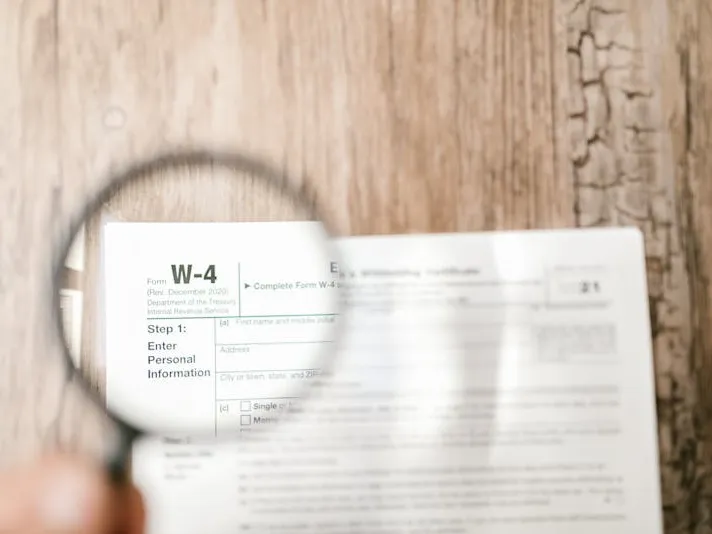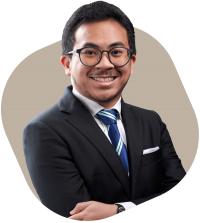Calling the Forgery Experts: A Guide to Handling Forensic Document Examiners in Civil Litigation
by Ahmad Iyas Husni ~ 22 March 2024
Introduction
With the world facing increased commercialisation, the chances of you being a victim of fraud and scams have also gone up. The ways where one can commit fraud are virtually limitless. If any civil litigation has been brought against a party and the dispute involves an issue of a forged document, a forensic document examiner ought to be called as a witness to strengthen your case.
Who is a Forensic Document Examiner?
A forensic document examiner is a person who is trained to analyse documents and its its’ key features to determine its’ authenticity. Some of these key features may include handwriting, signatures, typewriting, and fingerprint impressions. Once these key features have been analysed, a forensic document examiner can give their opinions in respect of the authenticity of those features.
It should be noted that forensic document examiners are typically classified as experts and their evidence is governed under section 45 of the Evidence Act 1950 which states as follows:
“(1) When the court has to form an opinion upon a point of foreign law or of science or art, or as to identify or genuineness of handwriting or finger impressions, the opinions upon that point of persons specially skilled in that foreign law, science or art, or in questions as to identity or genuineness of handwriting or finger impressions, are relevant facts.
(2) Such persons are called experts.”
In order for the court to determine whether such a person is an expert within the meaning of the Act, they must first determine whether that person possesses the necessary academic qualifications or the relevant personal experience within the scope of section 45 of the Evidence Act 1950. The Federal Court in Junaidi Bin Abdullah v Public Prosecutor [1993] 3 MLJ 217 gave a helpful illustration of this requirement:
“In our view, the test to be applied for the purpose of s 45 of the Evidence Act 1950 is this. First, does the nature of the evidence require special skill? Second, if so, has the witness acquired the necessary skill either by academic qualification or experience so that he has adequate knowledge to express an opinion on the matter under enquiry? The answer to both questions must necessarily depend on the facts of each particular case. The speciality of the skill required of an expert witness under s 45 would depend on the scientific nature and complexity of the evidence sought to be proved. The more scientific and complex the subject matter, the more extensive and deeper will the court be required to enquire into the ascertainment of his qualification or experience in the particular field of art, trade or profession. But in the final analysis in a non-jury trial, it is for the trial judge himself as both judge of fact and law to determine the weight to be attached to such evidence notwithstanding the outstanding qualification or experience (or the lack of it) of the expert.”
In summary, a court may be prepared to consider either the academic qualification or the personal experience of the examiner to determine whether he is an expert within the scope of section 45 of the Evidence Act 1950. If an expert has both the academic qualifications and the personal experience, a court may attach more weight to the opinion of that expert. The more complex the subject matter, the more scrutiny the examiner will undergo by the court to determine whether he is an expert. This sliding scale will be looked at in the context of the whole evidence and circumstances of the case that is presented in court.
An example of how this sliding scale is applied was seen in the old English case of R v Silverlock [1894] 2 QB 766. In that case, there was an allegation that the accused’s handwriting was found on certain documents and it then became necessary for the prosecution to prove that the handwriting belonged to the accused. The prosecution then called a solicitor to testify as to his opinion on, who that handwriting belonged to. The solicitor also testified that he had, since 1884, undergone a study of handwriting, especially on old registers and wills, and that he had professionally compared evidence in handwriting on several occasions. Ultimately, the court found him to be a handwriting expert and accepted this evidence. The court held that:
“Looking at the matter practically, if a witness is not skilled the judge will tell the jury to disregard his evidence. There is no decision which requires that the evidence of a man who is skilled in comparing handwriting, and who has formed a reliable opinion from past experience, should be excluded because his experience has not been gained in the way of his business.”
However, where such examiners are given recognition of their expertise by the Government, a court will not have to conduct the same level of scrutiny into an expert’s academic qualifications or experience. All the court would need to note is whether this type of expert has been gazetted by the Government pursuant to any relevant legislation. If the examiner has been gazetted under law, he is an expert and can give testimony in court as one (see PP v Saad Bin Mat Takraw & Anor [1998] 3 MLJ 784).
One may source qualified forensic document examiners in Malaysia through different ways. There are many privately commissioned handwriting experts on the market or they may be sourced from government departments such as the Chemistry Department for handwriting experts or the Criminal Record Registration Division of the Royal Malaysian Police for fingerprint experts.
How to Bring in the Testimony of a Forensic Document Examiner?
Where a party intends to call a forensic document examiner to testify in a case, their evidence will be brought in the same manner as any other expert. There are two ways whereby the testimony of a forensic document examiner can be brought into court proceedings.
The first method is through the use of the procedure set out in Order 40A of the Rules of Court 2012 where an expert can be called by one of the parties in litigation. That forensic document examiner would then produce a report that sets out his full analysis, opinions, and conclusions which will be tendered through an affidavit sworn by the examiner that verifies that he accepts full responsibility for the report and that he is aware of his overriding duty to the court to assist the court on the matters within his expertise.
The second method is through the use of the procedure set out in Order 40 of the Rules of Court 2012 where that expert is appointed by the court itself for the purposes of obtaining that expert’s opinion on an issue that has arisen in a case. These experts may be appointed prior to the commencement of the trial or they may be appointed in the event of a deadlock between the opinions of two other experts called under Order 40A of the Rules of Court 2012 (see Ernest Cheong Yong Yin v KM Engineering & Development Sdn Bhd [1996] 4 MLJ 438).
What Happens if a Forensic Document Examiner is Not Called to Testify?
Where a party fails to call an expert witness to testify in court on the forgery, this may have grave implications in that party’s ability to maintain the allegation of forgery.
This is because if a party has alleged that a document has been forged, the burden lies on that party to prove that a document has been forged. Although the law recognises this burden is based on a balance of probabilities, practically the burden is an onerous one and the failure to discharge this burden may ultimately lead to a dismissal of your claim (see Letchumanan Chettiar Alagappan @ L Allagapan (as executor to SL Alameloo Achi alias Sona Lena Alamelo Acho, deceased) v Secure Plantation Sdn Bhd [2017] 4 MLJ 697).
Conclusion
In an action involving forgery, the issues are normally complex and one must bear in mind the many nuances involved when trying to prove such a case. If you happen to be a victim of forgery, do seek out legal advice to determine the best course of action for you.

